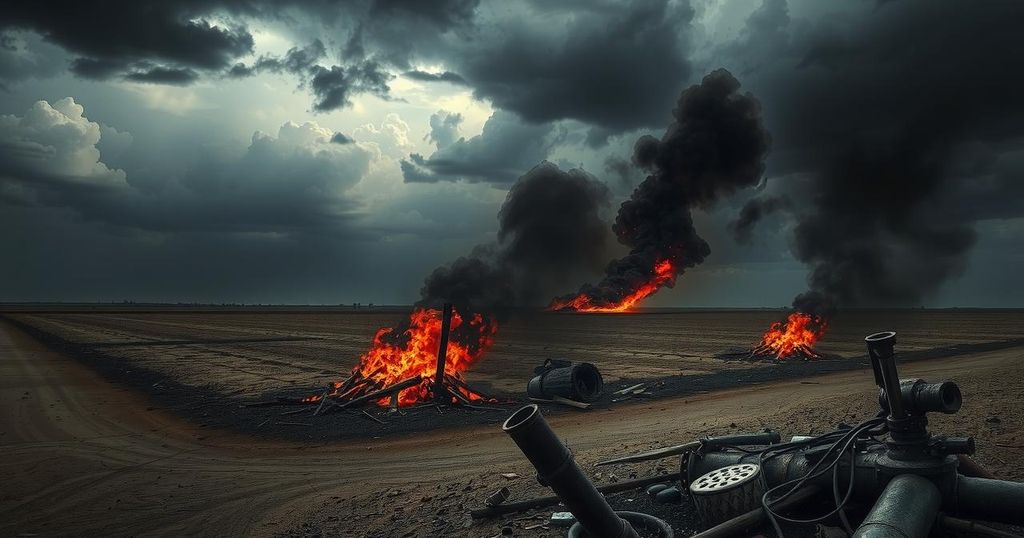South Sudan’s Vice President Arrested: A Nation on the Brink of Conflict

The arrest of South Sudan’s Vice President Riek Machar has escalated political tensions and risks plunging the nation into renewed conflict, following weeks of violent clashes and a deteriorating power-sharing agreement with President Salva Kiir. The international community is increasingly concerned, with some nations advising their citizens to leave Juba amid fears of widespread violence.
The arrest of South Sudan’s First Vice President Riek Machar on Wednesday has heightened tensions, positioning the nation on the brink of further conflict. Armed vehicles stormed his residence in Juba, leading to his detention amid escalating unrest stemming from a deteriorating power-sharing agreement with President Salva Kiir. This fragile political situation raises fears of a return to the civil war that claimed approximately 400,000 lives from 2013 to 2018.
Statements from Machar’s party condemned this unconstitutional act by the Minister of Defense and the Chief of National Security, describing the events as a forceful breach of sovereignty. It was reported that his bodyguards were disarmed during the incident, and unclear charges were presented as the rationale for his arrest. The situation now places South Sudan in a precarious state, where potential widespread conflict looms.
The United Nations Mission in South Sudan (UNMISS) has warned that national leaders are in danger of devolving into widespread unrest, citing that the disregard for the 2018 peace agreement could devastate not only South Sudan but also the broader region. Analysts suggest that President Kiir, now 73, has been working to solidify his political power while sidelining Machar, which has included arrests of several of Machar’s allies since February.
Violent clashes have escalated between forces loyal to the two leaders, particularly in Upper Nile State. Reports indicate that government forces have attacked military training centers established for integrating both sides into a unified army, a critical aspect of the peace process. On social media, Machar’s military faction condemned these assaults as acts of terrorism.
The political unrest has left many citizens, such as resident Lilian Sukeji, expressing fears that South Sudan is reverting to war. She advocates for dialogue over violence, highlighting the need for leaders to pursue peace actively.
Prior to Machar’s arrest, Kiir had pledged commitment to peace, although violent clashes have persisted throughout the country, affecting multiple states. Analysts indicate that the situation is evolving into a widespread conflict, characterized by decentralized violence and potential loss of control by political leaders.
Concerns from international observers have led to changes in embassy operations in Juba, signaling a growing urgency regarding South Sudan’s instability, with countries advising their citizens to evacuate.
In conclusion, the arrest of Vice President Riek Machar signals a critical juncture for South Sudan, threatening a resurgence of conflict in a country already scarred by civil war. Increased tensions, violent clashes, and a breakdown in dialogue between political leaders are alarming signs of instability. The international community’s response and the internal political dynamics will play crucial roles in determining the nation’s future.
Original Source: www.newstopicnews.com







